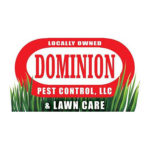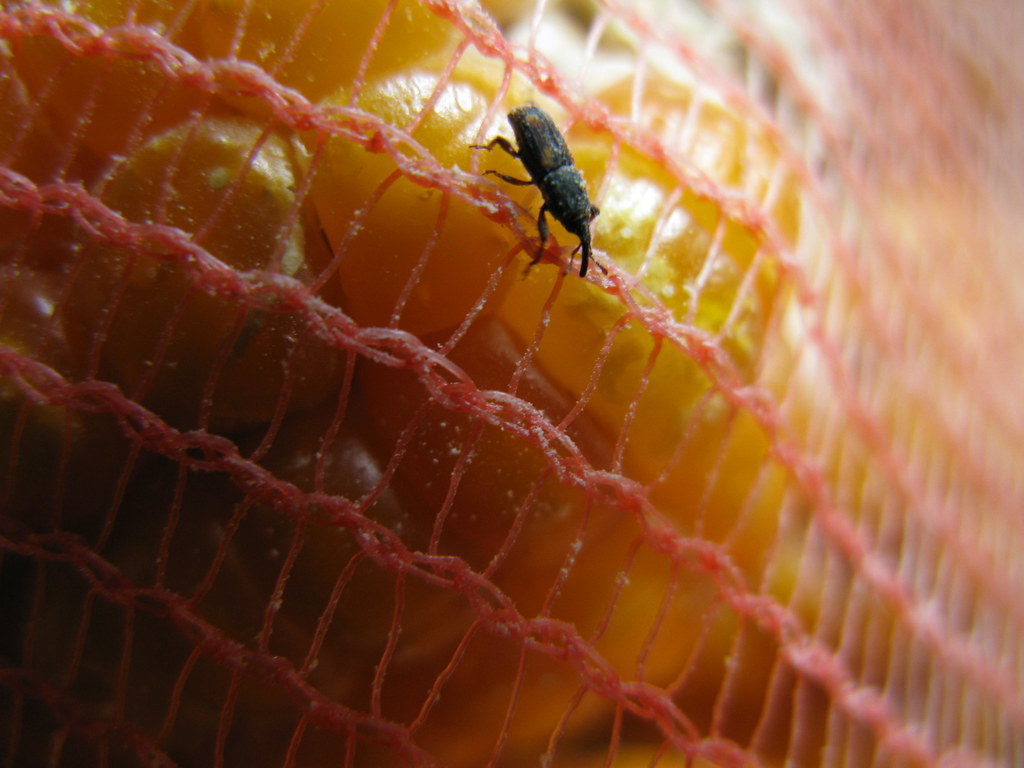Grain weevils might be tiny in size, but the havoc they can wreak upon your home is anything but small. These pesky pests are a common nuisance for homeowners — especially in regions with a bustling grain culture, like Lancaster and York County. If you’ve discovered these unwelcome guests in your pantry, read on to learn some effective grain weevil treatment methods.
Understanding the Grain Weevil
Before you tackle your infestation, it’s important to understand some grain weevil basics. The grain weevil is a type of beetle that is notorious for its fondness for grains and dried foods — including wheat, corn, barley, oats, and even macaroni. While some grain weevils may also be discovered in flour, the flour beetle is a different species. Flour beetles (most commonly confused flour beetles and red flour beetles) are a kind of grain beetle.
It is also important to note that the appetite of grain weevils isn’t confined to pantry items: They’ll also nibble on fabrics, books, and even wallpaper, making them a multifaceted threat in your household.
Grain weevils are survival experts, and their lifecycle is built around ensuring that their offspring prosper. Adult weevils lay eggs in grains — and once hatched, larvae can mature within the kernels themselves. The larvae are most often be found in foods like birdseed, popcorn, nuts, and Indian corn.
These pests multiply rapidly, with many adult females laying over 200 eggs in just a matter of weeks. Therefore, a full-blown infestation can occur without any knowledge to the homeowner.
Types of Grain Weevils
Spotting a grain weevil in your pantry might prove challenging, as these pests typically measure around the 1/8th inch mark. All grain weevils are slender with distinctive elongated snouts. Grain weevil larvae are plump, cream-colored, and legless.
While there are numerous species, the most common are granary weevils, rice weevils, and maize weevils. Understanding the subtle differences between these species is important for effective pest management.
- Granary weevils, as their name suggests, are typically found in grains like wheat and barley. They are chestnut brown in color.
- Rice weevils target rice but are not averse to wheat or corn. They are slightly smaller and darker (often reddish brown) than granary weevils. This variety also has light red to yellow spots on its back.
- Maize weevils prefer corn but will not shy away from other grains. They closely resemble rice weevils and are glossy and nearly black in color.
Rice and maize weevils can fly, while granary weevils cannot — a factor that can influence the spread and treatment of their infestation.
Grain Weevil Prevention
An ounce of prevention is worth a pound of cure, and this adage is especially pertinent when it comes to pantry pests like grain weevils.
Proper Food Storage Practices
Weevils can infiltrate staple foods that are often left out or stored inadequately. Implementing airtight storage for all grains and dried goods can significantly reduce the risk of an infestation by eliminating the weevils’ oxygen supply.
Regular Cleaning and Maintenance
Keeping your shelves and storage containers clean is a simple but effective defense. Regularly dispose of crumbs and residue to minimize potential food sources and hamper the weevils’ reproductive efforts.
Sealing Cracks and Crevices
Weevils are adept at squeezing through tiny openings. Make sure to seal any cracks in your pantry or kitchen, as these serve as welcome avenues for pests of all kinds.
Grain Weevil Treatment Options
Homeowners may be tempted to handle the situation themselves, but grain weevil elimination can be challenging. Here are a few treatment options to help you temporarily get rid of grain weevils.
Natural Remedies
Taking a natural approach to pest control can be both effective and environmentally friendly. Here are some detailed natural remedy strategies:
Bay Leaves: Used in culinary practice for their distinctive fragrance, bay leaves are also a powerful deterrent against grain weevils. The aromatic compounds in the leaves are unpalatable to these pests. Tuck whole bay leaves into your canisters of flour, rice, and other grains. Replace them periodically to maintain their deterrent effect.
Cloves: Much like bay leaves, cloves possess a strong scent that weevils find repelling. You can place whole cloves in your pantry or sprinkle powdered cloves around storage areas. The powerful eugenol oil not only disrupts the weevils’ feeding habits, but also acts as a natural insecticide.
Diatomaceous Earth: A fine powder made from the fossilized remains of diatoms, diatomaceous earth can be sprinkled around your pantry and on shelves. The sharp, microscopic edges of the powder cut through the weevils’ exoskeletons, leading to dehydration and death.
Freezing: If you suspect that your grains may already be infested, freezing is an excellent preemptive strike. Place your grains in the freezer for at least four days. The extreme cold will kill any larvae or eggs, stopping the infestation in its tracks.
Insecticides
While chemical treatments can kill grain weevils, they must be used with caution to avoid possible health hazards or contamination. It is imperative to select solutions that are specifically approved for use near food and to strictly adhere to the product’s instructions.
We recommend against using chemicals or traditional pesticides in food areas. Not only are many of these products toxic to humans and pets, but they can also have detrimental effects on the environment. Insecticides are best employed by professional exterminators as part of an integrated pest management strategy.
How to Get Rid of Grain Weevils for Good: Call a Professional
To ensure that your weevil infestation is fully eliminated, contact an experienced pest control company like Dominion. Our experts are armed with the knowledge and tools to help you get rid of grain weevils long-term.
Dominion Pest Control employs a variety of proven techniques to assist homeowners in the battle against grain weevils.
Advanced Monitoring and Inspection Protocols
Experts at Dominion Pest Control use state-of-the-art monitoring systems to identify the exact species of weevil, thereby ensuring that the most effective treatment plan is implemented. This precise identification is fundamental to our success.
Professional Grade Pesticides
Where necessary, Dominion Pest Control applies professional-grade pesticides that are not readily available to the public. Made by Nature-Cide, these commercial-grade solutions kill adult weevils on contact — reflecting our priority for swift and decisive action. Because these products are made from naturally sourced components like clove oil and cottonseed oil, they are both nontoxic and environmentally friendly.
Insect Growth Regulators
Our technicians may also use insect growth regulators (IGRs) as part of the treatment. These substances interfere with the weevils’ life cycle, preventing them from reaching maturity and reproducing. An added benefit of IGRs is that they can remain effective for several months.
Sealing and Proofing Services
Beyond elimination, our services include sealing and proofing the affected structures to prevent future infestations. This may involve repairing any cracks or holes where pests could potentially enter.
Ongoing Support and Follow-Up
After the initial treatment, Dominion Pest Control provides ongoing support and follow-up visits to monitor the situation and ensure that the grain weevils are gone for good.
If left unchecked, grain weevils can swiftly transform from a small problem to a large-scale infestation. Remember, timely prevention and effective treatment are imperative in safeguarding your home against these pantry pests.
To get rid of grain weevils quickly and keep them under control, contact Dominion Pest Control. Call us today at (717) 393-7879 or contact us here for a free consultation.

